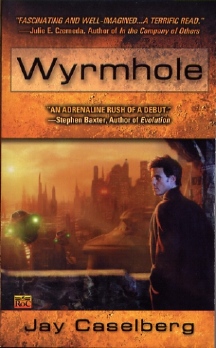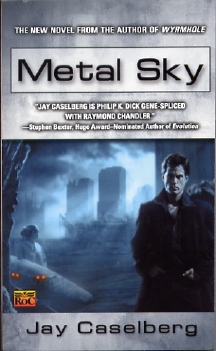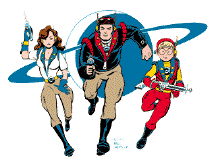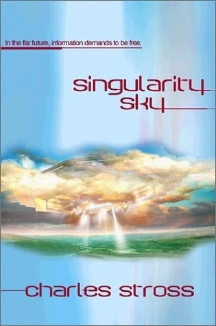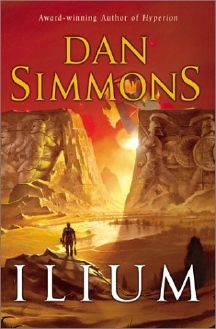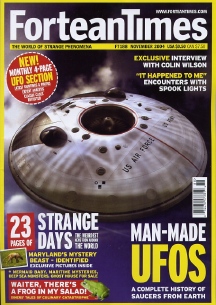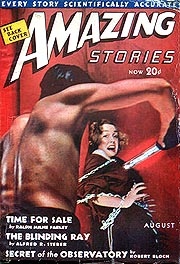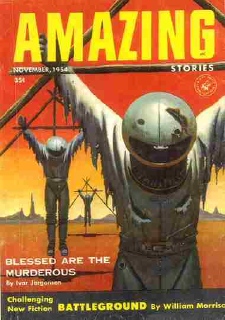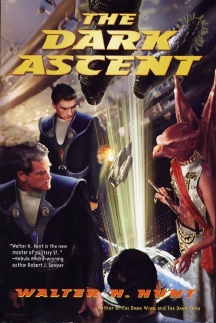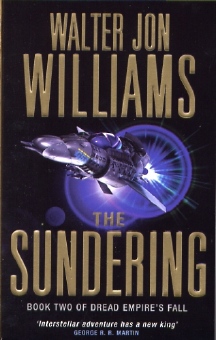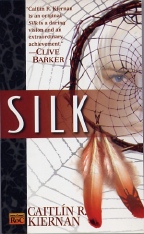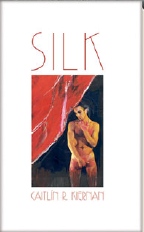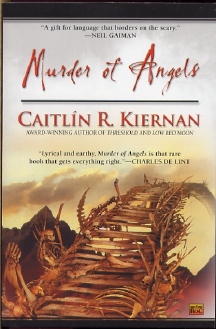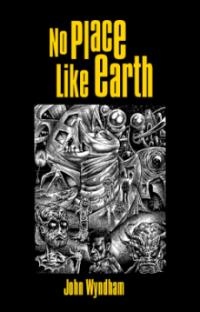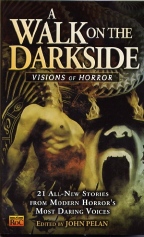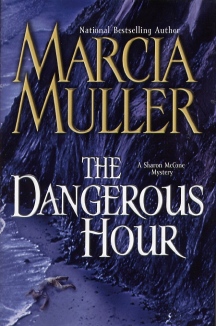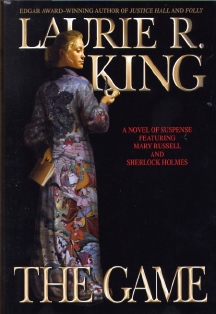|
|
|
This Just in..News from the Agony Column
|
09-03-04: How to Find a New Author of Interest; Were I At WorldCon #1 |
||||||
A
Casebook Example #1: Jay Caselberg
I know that I saw 'Wyrmhole' Jay Caselberg's first novel go by last year, and I said to myself, "Well...maybe...uh...not right now." Damn. Missed one. Well, that can be rectified. Earlier this year, I fired off a subscription to 'The Third Alternative'. And when the spring issue came in the mail, what should I find but a short story by Jay Caselberg. I've got to admit that I didn't recall the name and only vaguely recalled the novel when I saw it listed in his author credits. But his story in TTA, 'Iridescence' was to my mind quite compelling. He offered great writing and a wonderful sense of mystery. I bookmarked the name in my mind by actually writing about the story, and noting that he resided in the UK, always a good sign as far as I'm concerned. Lasts week, Jay's newest novel arrived. 'Metal Sky' (Roc/Penguin-Putnam, September 7, 2004, $6.99) would have looked pretty interesting even had I not read the story. Given my enjoyment of the story and the verve with which Caselberg created a world that was compelling and mysterious, it went straight to the must-read list, along with its predecessor, which I went to some pains to obtain. So now what I have are two hotly anticipated-by-me novels from a UK writer that first see publication in a by-definition cheesy US mass-market paperback format. That's a whole bunch of good signs. 'Wyrmhole' introduces Jack Stein, psychic investigator. He looks for people -- in his dreams. So here's the setup: a far future where humanity is splattered across the stars, stabbing and grabbing, polluting and looting. Stein lives in the Locality, where the bottom layers swarm with scum and the upper levels sing sweet hymns to riches -- and the rich. Stein is hired by Outreach Industries to find some missing miners. But a minor piece of evidence lands him in major trouble. It's PI 101 in space. Not a bad concept to start with, and Caselberg's story in TTA suggests that he'll be able to pull it off with some style and lend mystery to the mystery. This novel manages to hit a lot of points of interest to me, and having a UK connection for this cheesy paperback certainly helps.
Both of these books seem to offer a very nice combination of classic mystery fiction tropes and surreal science fiction tropes. I know from reading TTA that Caselberg can deliver on the prose side and the SF mystery side. By SF mystery, I mean the old mystery inherent when one is presented with an unreal world -- "How does this world work? How is it connected to ours?" What inspires my buying dollars is that he's matching that with a mystery genre spin that I suspect he'll be able to handle very enjoyably and very well. In fact, he's the kind of author one wishes had first showed up in hardcover, where we might have been more inclined to pay attention to that first novel. Well, I guess that's what I'm here for. See? We do do our job, finding new authors and helping readers find new authors. I'm pretty strangled for time to write and read, so I may not always be the first on the block, but damn, we do bring 'em in. And when you find a writer with the potential of Caselberg you a) attend the con he's at and hear him speak, b) give those low-cost books a spin and send a fiscal message to the publisher, c) enjoy the hell out of the process and result of finding a new author. |
||||||
A
List of Panels that Would Interest Me
I've linked the list separately -- and posted it yesterday to increase usefulness, so as to give those who only want to view this that choice. |
|
09-02-04: Who Chooses the Hugos?, Colin Wilson Speaks |
||||||||||
Noreascon
4 Begins
I suppose as I strolled through the convention halls in both of the WorldCons I've attended I imagined "a lot" to equate to maybe one or two thousand people. As I mentioned in my article, that still leaves lots of room for bias and local vote manipulation. (The Home Boy Makes Good Effect.) By now, you've probably looked at the web page; if not, let me tell you. The biggest vote, for the most important fiscal category, Best Novel was 462 ballots. Split across five novels, that seems pretty damn small, frighteningly so. The least voted category, Best Fan Artist, garnered just 190 votes. Huh? These are fans voting fercrissakes! The mind boggles. But I suppose that it has ever been thus. If I'm not mistaken, individual vote totals will be released sometime in late September. Readers can get an even better idea then of who won and by how much. Taking a look at today's schedule, all I can say is damn. Jay Caselberg moderating a panel on great new British Sci-Fi and Fantasy? I'm there - not! And this is just the beginning. I have to say that the panels look particularly good, and this just the first day. On the other hand, one can get fatigued just looking at the schedule. I remember running with my wife from panel to panel at Torcon. It was fun but rather stressful. But part of that was down to the often-significant distance between the panels. That might not be the case at Noreascon. As we await the results of the Hugo votes, as participants scurry between the panels, as Noreascon progresses -- my congratulations go out to all the nominees, the participants, the organizers. Yes, I'm having a wonderful time, and I wish I was here. Or as Buckaroo Banzai would put it -- "Wherever you go, there you are." |
||||||||||
Fortean
Times 188
Wilson is known primarily as a sort of tweaked, philosophical Charles Fort. He's published books on UFOs, alien abductions, Atlantis, pretty much you name it and he's written on it. But to most accounts, not well. To give readers an idea of Colin Wilson's output, I'd suggest they look up a movie titled 'Life Force'. It's based on Wilson's novel 'Space Vampires', and features an early performance by Patrick Stewart and, more importantly, a Penthouse "model" as one of the vampires, wandering about London in the altogether and flaring bad special effect lightning bolts at hapless men who shrivel up into human prunes. One imagines it was not a literary high point either. 'Dreaming to Some Purpose' has been described as "jaw droppingly -- one might say cringe-makingly -- honest and often unintentionally hilarious." So where else do you find an inteview with an aging fetishist and UFO researcher? The latest Fortean Times. He discusses his "prodigious output and an overdraft to match" with Gary Lachman in a conversation sure to provoke either laughter, anger, or tears. And he mentions his crowning achievement not as 'The Outsider', but rather the 'Spiderworld' series. You know they had a couple of those sitting around at Logos for literally years, but only the first two. That's because, I suspect, there were only two. "I hope that in 100 years, if you say 'Colin Wilson' to some teenager, he won't think of The Outsider, but of Spiderworld." Now there's a quote you're not going to come across in any other magazine. Elsewhere, there's a very nice cover story about American UFO's -- probably to balance out that recent issue about the nasty Nazi UFO's. A new department debuts with four solid pages on UFO's, presumably gearing up for the forthcoming re-make of yet-another-movie-that-does-not-need-to-be-remade, War of the Worlds. And cashing in on the current wave of sightings -- remember folks, multiple UFO sightings are called a flap. It's a flap of UFO sightings every month in Fortean Times. Joy! You also get an article on my favorite Saint, Hildegard Von Bingen, who created some of the most haunting music ever to be actually written down. And sadly, actually, they've solved the Maryland Monster Mystery. Turns out the hoyote --a critter that got caught on video several times and looked like a cross between a hyena and coyote -- is only a red fox with a bad case of mange. But there's a monster that's at least undeniably real. They caught it and they're going to cure it, then send it out into the wild after it's been restored to health. I think FT has similar plans for Colin Wilson. |
|
09-01-04: A Solid Bloch of Everyman SF |
|||||||||
The
Fear Planet and Other Destinations from Subterranean Press
Subterranean Press, still conquering the world (though they bear no resemblance to the inverted ice-cream cone of 'It Conquered the World') is starting off a new series of collections of Robert Bloch's heretofore uncollected short stories in 'The Reader's Bloch'. Volume 1, 'The Fear Planet and Other Destinations' (Subterranean Press, November 3, 2004, $40.00 Deluxe hardcover) collects Bloch's early little-known science fiction and offers a wonderfully informative introductory essay by editor Stefan R. Dziemianowicz.
Bloch himself said that "..You're talking to someone who knows nothing whatsoever of the hard sciences...as I like to be able to control the material that I work with...I don't want to be bound by hard and fast scientific laws and premises..." So when Bloch wrote SF, it wasn't about the cutting-edge scientist, but rather, malfunctioning gadgets and under-achievers in a near-non-future filled with narrators who say things like "I know just about enough science to change a washer." He'd emphasize comedy over solemnity, and humanity over machinery. In that sense, he'd prove prophetic.
Subterranean Press is one of our most dependable publishers and we can be assured of a gorgeous quality volume. Of particular interest is Dziemianowicz's introduction -- and every story within. This is not to say that they're all excellent, well written stories -- but even the clinkers offer a look at a time when science fiction was young and ungainly. And the clinker here -- Bloch's 'Secret of the Observatory' is arguably the first story to envision the Japanese attack at Pearl Harbor. But remember that science fiction isn't about prophecy or the future, really. It's the present, gussied up in a glittering spacesuit, rescuing the damsel about to be in distress. |
|
08-31-04: Two Walters |
||||||
Walter
Jon Williams and Walter Hunt Wage War in Space
In the first two novels of this series, humans have fought a war with a race called the zor and won. But that war was just a shadow puppet, and the race pulling the strings, confident it can eliminate both species, has now revealed itself. The hero known as 'The Dark Wing' is now long-dead, and a new hero, rebellious Space Commander Spiff, no, no, space commodore Jack LaPierriere has come forth. 'The Dark Ascent' is the Atkins diet of space opera -- it's all meat, no carbs, just enough grease to make it go down fast. From the rather stunning 3-d imagery on the cover to the pages of dialogue and action that follow, you have a no-holds-barred war.war.war on your hands. And not just a space war -- you've got a symbolic sword and echoes of martial fantasies. High-tech sorcery and hypnotism present themselves, standing at stern attention. One envisions the music to accompany this novel as consisting mainly of orchestral strikes and brass marches. With a hardcover original first edition, you'd better believe that there are a lot of readers digging this series. And while the relentless pacing of such novels does seem to send one hurtling towards a heart attack, that's the point, isn't it? This is the small, well-defined but remarkably successful sub-genre known as Military SF in peak form. Blazing spaceships, perilous politics, alliances made and re-made, personal promises that put lives on the line, this is military drama cranked up to eleven and fired off into space. Hunt spices up his battles with intriguing slices of Zen Buddhism and Taoist philosophy, and augments the text with a bevy of chapter-opening quotes that keep the reading lively.
Even within the most specialized of specialized sub-genres, you can find a pretty interesting and entertaining variety, and a fair amount of entertaining reading. It certainly makes for more variety than you'd guess -- even in the uncharted depths of space. |
|
08-30-04: Caitlin Keirnan's Books of the Damned; John Pelan Turns Out the Lights; The Dangerous Games |
||||||||
Silk, Murder of Angels and To Charles Fort, With Love?!?!?
I picked up the original mass-market paperback copy of 'Silk' from Roc when it first came out, six years ago in June of 1998. Damn, Y2K was only a year and half away and I was sweating bullets over compliance issues for the ancient VAX I'd inherited. Funny how much that matters to me now, (i.e., not at all) compared to this tiny paperback, currently the focus of all my attention. 'Silk' received the kind of praise the critics cannot give; it was published in a limited edition by Gauntlet Press, with illustrations by no less than Clive Barker. And consider yourself lucky, because I believe that you can still buy copies direct from the publisher. At least, for now. No guarantees on that later! 'Silk' is a pretty damn hard novel to pin down. Looks a bit like a Goth-vampire book, but that's not how it pans out. Instead, you have an almost Faulknerian novel of hallucination, torment and interior horrors externalized in dense, intense prose. All this and characters you give a shit about. Good thing, too. They didn’t all die when 'Silk' ended...though some of them might have wished to.
I for one can’t wait to read this peculiar mix of high-fantasy, urban horror and Southern-fried pathos. Kiernan has a nice drug-laced prose style that's absorbing and affecting. And, she's a Fortean fiend, a fan of the Charles-Fort influenced movie 'Magnolia'. Too bad they don't give Oscars® for Best Rain of Frogs. And that leads me to perhaps the most intriguing thing about this novel. It lists among her works, 'To Charles Fort, With Love', which, a quick look at her website tells me, was supposed to be forthcoming from Subterranean Press, but alas is not listed amongst her work there now. It appears to be a collection of her short stories, but with a title like that, she's got a lot of expectations to meet. I asked Caitlin about this collection and here's what she told me. It's even better than one could have hoped:
I'm looking forward
to this even more now. Too few writers have the perspicacity to recognize
the influence of Charles Fort on speculative fiction and even science itself.
Kiernan's interest in the works of Charles Fort speaks volumes about
the volumes
she writes. Had Fort known her, she might well have been in one herself --
she certainly belongs in 'Wild Talents'. |
||||||||
'A Walk on the Darkside' Edited by John Pelan
Pelan also has a novella forthcoming from no less prestigious a publisher than Cemetery Dance. 'The Colour Out of Darkness' (like me, Pelan and Lovecraft both prefer the British spelling of certain words) is a sequel to 'The Call of Cthulhu'. The miracle club-drug Essence opens doors of perception that are best left closed. And through those doors will come some entities with names familiar to many a horror-reader. Damn, I love this already.
|
||||||||
New Mysteries by Our Ladies of Darkness, Marcia Muller and Laurie King
Somewhere around our house is a paperback copy of Muller's 'Edwin of the Iron Shoes', the novel that introduces Sharon McCone. Muller's latest novel of Sharon McCone is 'The Dangerous Hours' (Mysterious Press/Warner Books, July 28, 2004, $25.00). Now McCone's been around long enough to be as involved in the business end of running a private eye business as she is in the private eye end. She's managing her money, her employees and her only problem is that her lover has proposed marriage, which brings out her full-fledged fear of commitment. Every girl should have such problems! It takes just one phone call for it all to unravel. A favorite employee has been charged with credit card fraud, and McCone finds the goods in the company stockroom. Soon it becomes clear that someone is intending to ruin McCone's reputation and her life. And it becomes equally clear how far she'll go to protect herself. Look, all you have to do is pick up this book, like I did, to be engaged by the immediacy of Muller's prose. Any writer would do well to read Muller's work, because it's such a great example of prose that puts the reader in the character's sensible shoes. She achieves the kind of clarity that modern prose is all about without sacrificing her own or her character's personality.
In this outing, Russell and Holmes must make their way to India incognito, to pursue a famous and now missing intelligence operative, who had ostensibly left 'the Great Game'. But his disappearance puts Russell and Holmes right in the midst of this game. I quite enjoyed King's novel 'Keeping Watch', which did an excellent job of weaving the history of the Vietnam war into a contemporary mystery of bad seeds and missing children. I'm looking for one hell of a lot of fun in the style of 'The Alienist', and hoping that somewhere along the way, they meet with a certain Dr. Lambshead. He'll be a right and proper help should they find themselves falling under the spell of one of those nasty diseases foreign climes are so well known for. So look for this reader to leap-frog from the land of Faerie to heavy-duty mystery in the coming weeks and hope that I don’t suffer from jet lag. Or one of those diseases, such as Third Eye Infection, so easily caught in the crowded streets of Bangalore. |
||||||||
